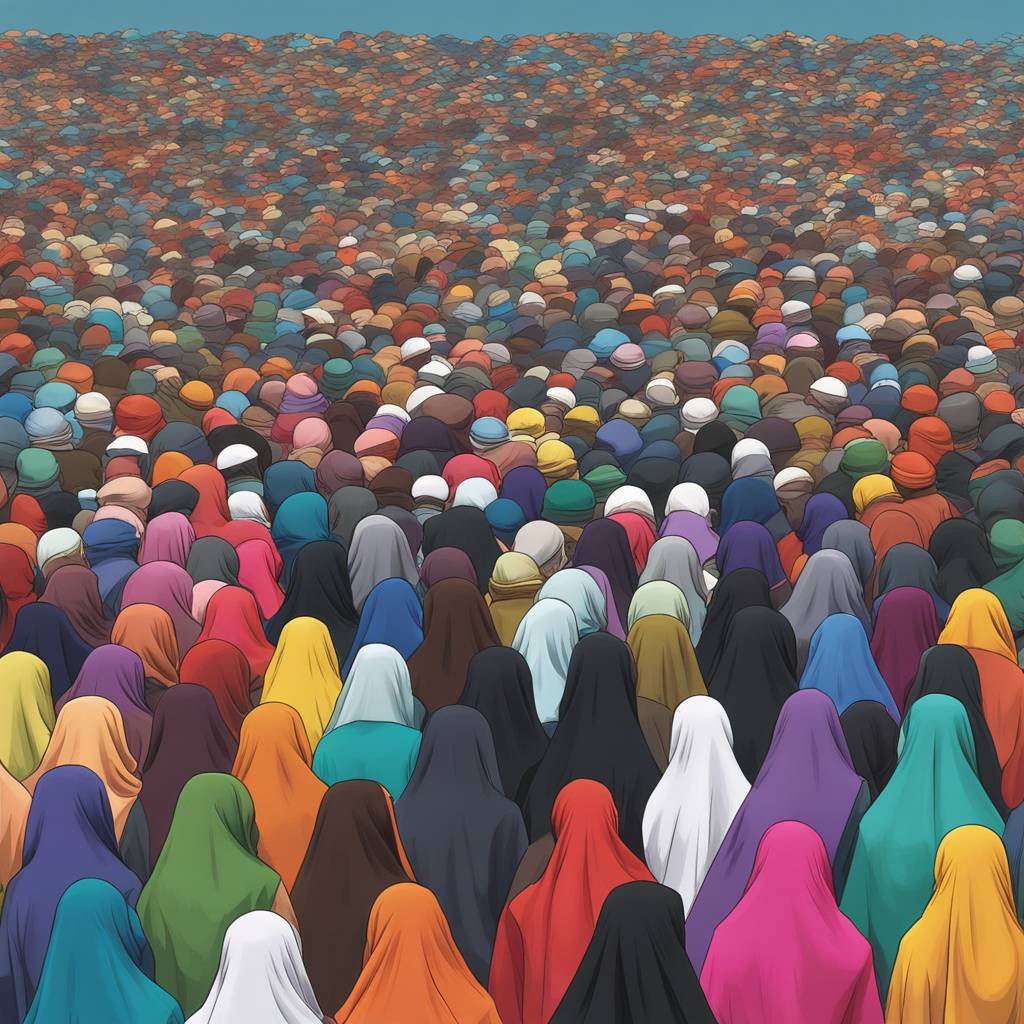In Malaysia, the rise of policies promoting modest clothing, checks on unmarried couples, closures of 4D betting shops, and religious “moral policing” by authorities are causing concern for individuals like Ms Siti Kasim. She fears that the country’s growing path of “Islamisation” will lead to significant changes in the Malaysian way of life. Kasim, an outspoken critic of Islamic religious authorities, believes that this imposition of religion is increasingly prevalent and being utilized by politicians to control and shape societal norms.
Various states in Malaysia, such as Kelantan and Terengganu, have shown strong support for the Islamist party PAS for many years, leading to policies that critics argue amount to moral policing. These states have a majority Muslim population, with Kelantan and Terengganu having over 95% of their residents identifying as Muslim, much higher than the national average of 63.5%. The implementation of bylaws emphasizing Islamic values in these states has led to incidents such as fines for violating dress codes and restrictions on certain business practices.
One such incident occurred in Kota Bharu, the capital of Kelantan, where a salon owner was fined for allowing her female worker to cut the hair of a Muslim male customer. Additionally, a non-Muslim boutique owner was issued a summons for wearing shorts in her shop, which was deemed to be violating the council’s bylaw on “indecent clothing”. These incidents highlight the strict enforcement of regulations that aim to promote Islamic values and control social behavior in these states.
The enforcement of these bylaws, which regulate aspects of daily life ranging from dress codes to business practices, has prompted criticism from those who see it as an infringement on personal freedoms. The cancellation of the summons issued to the non-Muslim boutique owner following media attention and public outcry indicates the sensitive nature of these policies and the potential for backlash against them. The bylaws enforced by the municipal council in Kota Bharu also extend to advertisements that are deemed immodest, reflecting a broader effort to uphold conservative Islamic values in public spaces.
In Kelantan, the ban on cinemas since 1990 has been justified by government representatives as a measure to prevent social ills, despite no concrete evidence to support this claim. The continued closure of cinemas in the state reflects a broader trend of restricting entertainment options and imposing strict regulations on public activities in the name of upholding Islamic principles. The influence of political Islam in these states has led to a climate of moral policing and control over personal freedoms, raising concerns among individuals like Siti Kasim about the future direction of Malaysia’s social and cultural landscape.













